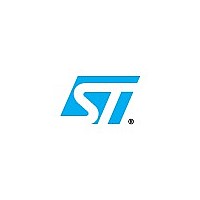PSD4235G2V-12UI STMicroelectronics, PSD4235G2V-12UI Datasheet - Page 51

PSD4235G2V-12UI
Manufacturer Part Number
PSD4235G2V-12UI
Description
IC FLASH 4MBIT 120NS 80TQFP
Manufacturer
STMicroelectronics
Datasheet
1.PSD4235G2-70U.pdf
(129 pages)
Specifications of PSD4235G2V-12UI
Format - Memory
FLASH
Memory Type
FLASH
Memory Size
4M (512K x 8)
Speed
120ns
Interface
Parallel
Voltage - Supply
3 V ~ 3.6 V
Operating Temperature
-40°C ~ 85°C
Package / Case
80-TQFP, 80-VQFP
Number Of Macrocells
24
Maximum Operating Frequency
25.6 MHz
Delay Time
90 ns
Operating Supply Voltage
3 V to 3.6 V
Maximum Operating Temperature
85 C
Minimum Operating Temperature
- 40 C
Mounting Style
SMD/SMT
Lead Free Status / RoHS Status
Lead free / RoHS Compliant
Other names
497-1970
Available stocks
Company
Part Number
Manufacturer
Quantity
Price
Company:
Part Number:
PSD4235G2V-12UI
Manufacturer:
STMicroelectronics
Quantity:
10 000
PSD4235G2
13
13.1
13.2
Memory Select signals
The Primary Flash Memory Sector Select (FS0-FS7), Secondary Flash Memory Sector
Select (CSBOOT0-CSBOOT3) and SRAM Select (RS0) signals are all outputs of the DPLD.
They are defined using PSDsoft Express. The following rules apply to the equations for
these signals:
●
●
●
●
●
●
Example
FS0 is valid when the address is in the range of 8000h to BFFFh, CSBOOT0 is valid from
8000h to 9FFFh, and RS0 is valid from 8000h to 87FFh. Any address in the range of RS0
always accesses the SRAM. Any address in the range of CSBOOT0 greater than 87FFh
(and less than 9FFFh) automatically addresses secondary Flash memory segment 0. Any
address greater than 9FFFh accesses the primary Flash memory segment 0. You can see
that half of the primary Flash memory segment 0 and one-fourth of secondary Flash
memory segment 0 cannot be accessed in this example. Also note that an equation that
defined FS1 to anywhere in the range of 8000h to BFFFh would not be valid.
Figure 7
level can overlap and has priority over any component on a lower level. Components on the
same level must not overlap. level 1 has the highest priority and level 3 has the lowest.
Memory Select configuration for MCUs with separate
Program and Data spaces
The 80C51XA and compatible family of MCUs, can be configured to have separate address
spaces for Program memory (selected using Program Select Enable (PSEN, CNTL2)) and
Data memory (selected using Read Strobe (RD, CNTL1)). Any of the memories within the
PSD can reside in either space or both spaces. This is controlled through manipulation of
the VM register that resides in the CSIOP space.
The VM register is set using PSDsoft Express to have an initial value. It can subsequently
be changed by the MCU so that memory mapping can be changed on-the-fly.
For example, you may wish to have SRAM and primary Flash memory in the Data space at
Boot-up, and secondary Flash memory in the Program space at Boot-up, and later swap the
secondary Flash memory and primary Flash memory. This is easily done with the VM
Primary Flash memory and secondary Flash memory Sector Select signals must not
be larger than the physical sector size.
Any primary Flash memory sector must not be mapped in the same memory space as
another Flash memory sector.
A secondary Flash memory sector must not be mapped in the same memory space as
another secondary Flash memory sector.
SRAM, I/O, and Peripheral I/O spaces must not overlap.
A secondary Flash memory sector may overlap a primary Flash memory sector. In
case of overlap, priority is given to the secondary Flash memory sector.
SRAM, I/O, and Peripheral I/O spaces may overlap any other memory sector. Priority is
given to the SRAM, I/O, or Peripheral I/O.
shows the priority levels for all memory components. Any component on a higher
Memory Select signals
51/129














